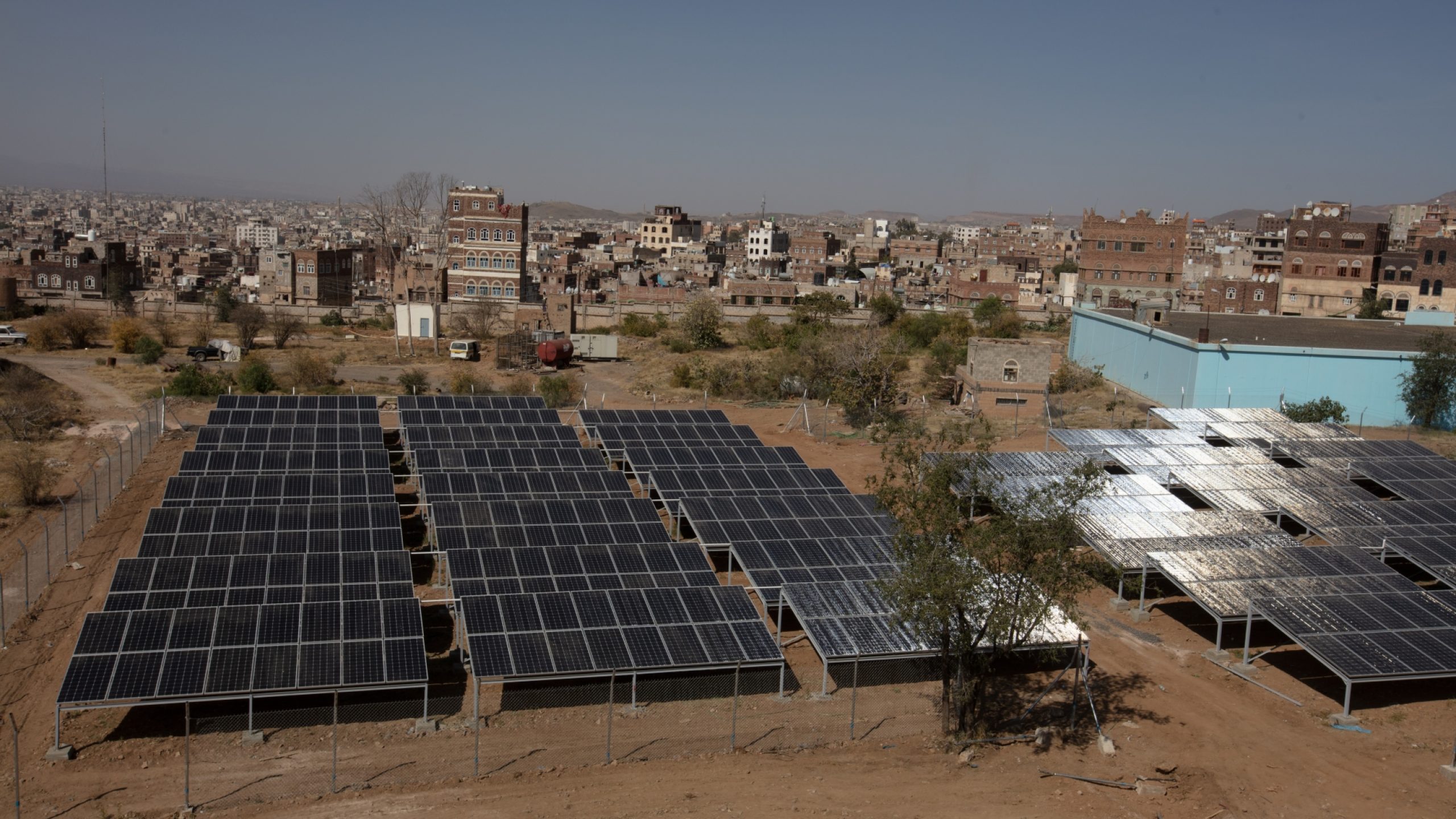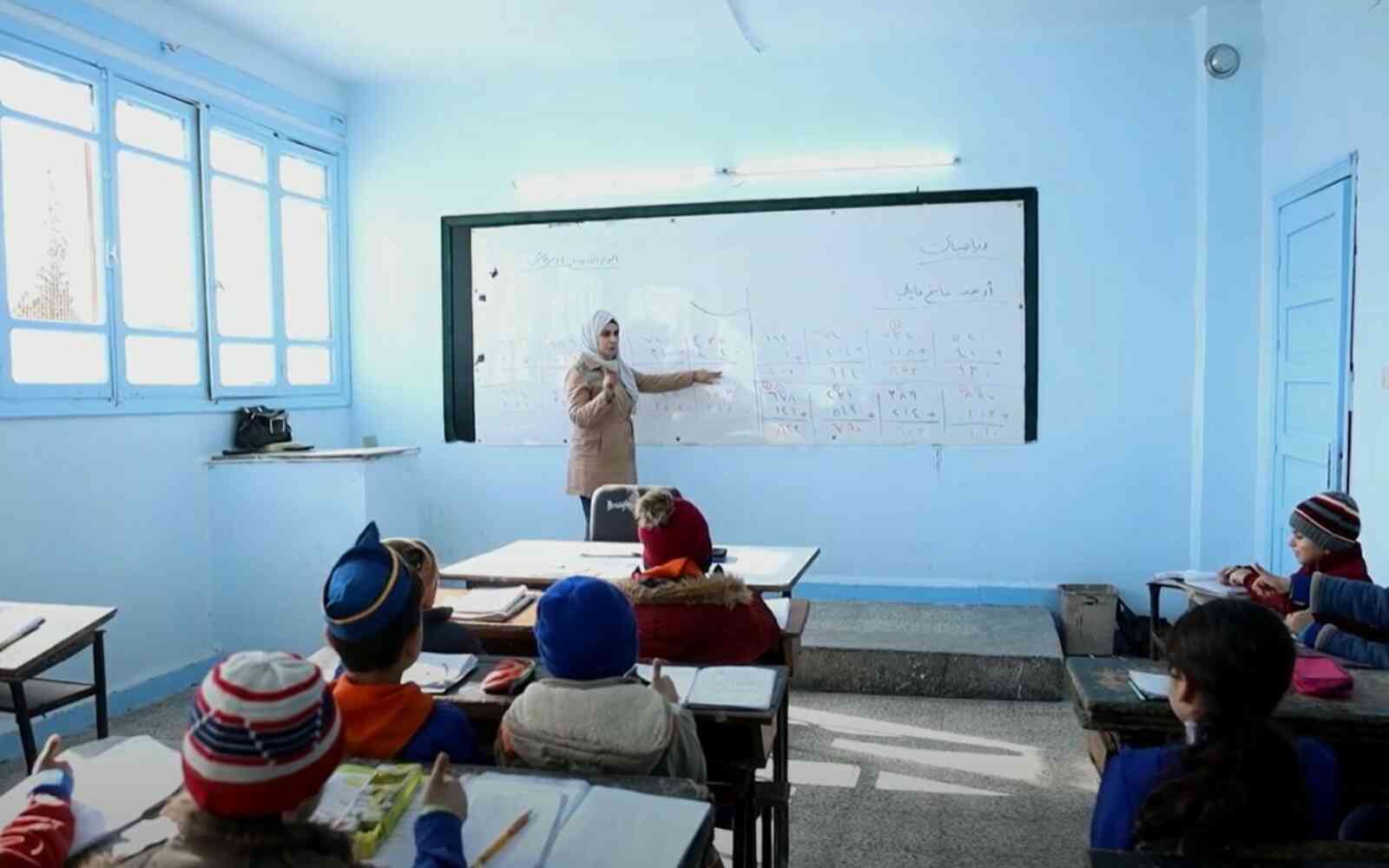The United Nations Office for Project Services (UNOPS)

Finding light amid Yemen’s darkest times
Across Yemen, restoring access to critical services – such as electricity – is desperately needed to improve health services and basic living conditions.
Well into its fifth year of conflict, the humanitarian situation in Yemen continues to worsen. In mid-2020, around 24 million people were in need of humanitarian assistance – representing 80 per cent of the population. Over 3.5 million people have been displaced from their homes while over 19 million people lack access to basic health services.
Throughout the country, the provision of public services, such as electricity, have come to a virtual standstill. Long-lasting power outages have crippled development efforts, wreaking havoc on other critical services such as education, water and sanitation, and healthcare.

Due to war and other factors, power cuts caused a huge problem for us in terms of delivering newborns and offering nursery services. Activity at the centre used to come to a complete halt during power cuts.
Millions of Yemenis are benefiting from improved access to essential services.
Today, with only 10 per cent of the country connected to the public electricity grid, a large majority of the population is deprived of reliable access to electricity.
Ibrahim Saleh, originally from the city of Taiz in southwestern Yemen, left his children behind and migrated north to the Wesab District in the Dhamar Governorate in search of work.
“We suffered from a lot of things: the high prices, the embargo […] at night we struggled with darkness. There was no electricity,” describes Ibrahim.
Ibrahim is just one of millions who lived in darkness as soon as the sun set.
I used to leave home in the morning and return in the evening. I entered the room but it was too dark to see. It was part of our struggle […] We used to sleep, drink and eat in the dark.




In an effort to relieve the ongoing crisis, UNOPS partnered with the World Bank to restore access to critical urban services in selected cities across Yemen. Restoring key services – including energy, water and sanitation, transportation and waste management – is critical to improving health, basic living conditions and local economic activity.
The two organizations are working with local implementing partners to provide off-grid solar electricity solutions for schools, hospitals, streets and households.
“This [solar] project offered a radical solution to our electricity crisis, allowing us to offer quality services to women, as now the hospital is operational 24 hours,” says Dr. Chafih. “We can also perform major and regular cesarean sections.”
At home, solar panels and light installations helped ease Ibrahim immediately. “I felt secure and relieved. I could turn the light on and see what was around me […] I can read […] cook my dinner and eat comfortably,” he says.




In addition to working with three local implementing partners, UNOPS is engaging with local authorities, institutions and communities to facilitate local ownership and promote sustainability. Citizens, especially women, have a voice in identifying projects. Decisions on the most pressing needs are made at the community level.
By restoring critical services while simultaneously rebuilding local capacity, up to 1.4 million Yemenis are expected to benefit from improved services and living conditions.
“We are proud to support the World Bank to revitalize critical urban services in cities across Yemen and improve living conditions for people in need,” says Bana Kaloti, UNOPS Regional Director for the Middle East.
Did you know?
- Due to the lack of electricity for water pumping, many rural households travel long distances to fetch water – a task that falls disproportionately on women and girls.

Light has brought life back. It's the source of life. Without light, you might as well be blind.
Our life improved a lot thanks to solar energy. We are able to get things done, and afford to go to sleep whenever we feel tired. Without solar energy we had to get all our work done before it got dark.

Project details
In an effort to relieve the ongoing crisis, UNOPS, with funding from the World Bank, is working to restore access to critical services through two projects.
The Yemen Integrated Urban Services Emergency Project
Financed by a $150 million grant from the World Bank’s International Development Association (IDA), UNOPS developed an integrated, multi-sectoral approach to service delivery to restore access to critical urban services in select cities across Yemen.
The three-year project aims to restore access to critical urban services for 1.4 million beneficiaries. This includes providing solar power solutions to more than 70 health facilities, 80 schools and 100 water facilities; rehabilitating 400 kilometres of roads; installing and operating LED street lights; and improving waste management services. The project will create 1.5 million days of temporary employment.
As part of the COVID-19 emergency response components added to both projects, the Yemen Integrated Urban Services Emergency Project quickly facilitated the delivery of equipment, tools, infrastructure and personal protective equipment to support Yemen’s fight against COVID-19.
The Yemen Emergency Electricity Access Project
With a $50 million grant from the IDA, UNOPS is working to restore electricity supply to 1.3 million Yemenis, including 200,000 households, 220 health facilities, 280 schools and 40 potable water wells.
The three-year project will finance distributed solar solutions to provide urgently needed access to electricity in rural and peri-urban areas in Yemen. The project is implemented in collaboration with the local private sector, including microfinance institutions, and solar equipment suppliers and installers.
Implemented in collaboration with other UN agencies as part of a broader coordinated COVID-19 response in Yemen, the Contingency Emergency Response Component was added to the project in mid-2020 to help fast-track access to electricity, so essential lifesaving services can continue.
For more information on our projects in Yemen, please visit https://ye.unopsmr.org/


















